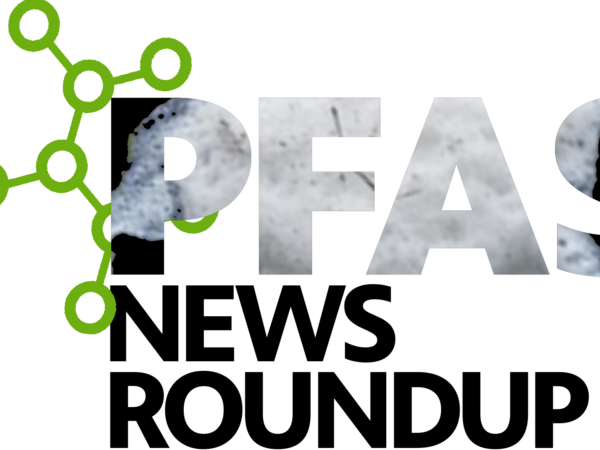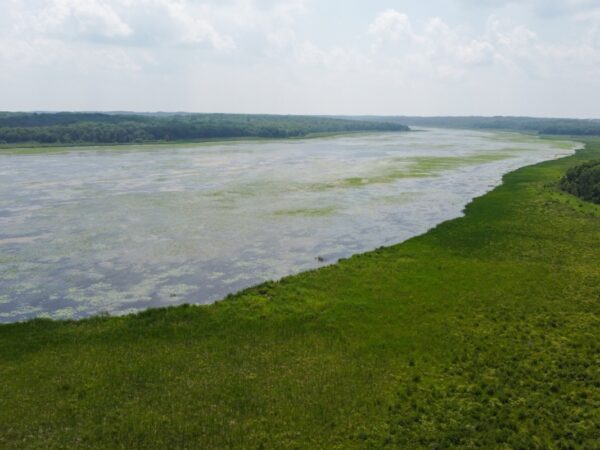
MINNEAPOLIS (AP) — Minnesota U.S. Rep. Ilhan Omar and her progressive congressional allies urged President Joe Biden on Friday to stop construction on Enbridge Energy’s Line 3 replacement, even as the project nears completion and the options to stop it dwindle.
Omar was joined by U.S. Reps. Rashida Tlaib, of Michigan, Cori Bush, of Missouri, and Ayanna Pressley, of Massachusetts, and Minnesota state Sen. Mary Kunesh, at a news conference in Minneapolis. The Democratic women called on Biden to revoke a federal water quality permit and stop the project, as the president did with the Keystone XL pipeline the day he took office.
Ahead of a planned weekend trip to northern Minnesota, where the pipeline is being upgraded, Omar and her allies echoed the arguments of Indigenous and environmental activists that the pipeline project would worsen climate change, violate Native American treaty rights, and risk spills in waters where Indigenous people hunt, fish and gather wild rice.
“We are here because the climate crisis is here,” Omar said. “The climate crisis is now. The climate crisis is happening and the last thing we need to do is allow the very criminals who created this crisis to build more fossil fuel infrastructure.”
The visit comes days after Omar sent a letter signed by nearly 50 state legislators and members of Congress to ask the Biden administration to meet with tribal leaders.
The heads of several Minnesota state agencies this week pushed back against several points in Omar’s letter, saying it exaggerated how much water Enbridge has pumped out of construction ditches amid the current drought and that the amount was actually well within approved limits. They also said claims in Omar’s letter that law enforcement used police dogs to intimidate protesters and fired “less-lethal” rubber bullets against demonstrators were false.
Pipeline supporters, including Republican U.S. Rep. Pete Stauber, of Minnesota, state lawmakers and pipeline workers, held a press conference at the Capitol in St. Paul earlier Friday to laud the jobs the pipeline has brought to the region. Jason George, business agent of Local 49 of the International Union of Operating Engineers, which has a couple thousand members on the project, called Omar’s letter an attack on pipeline workers.
Enbridge spokeswoman Juli Kellner called Omar and her allies “misinformed,” citing the letter from Democratic Gov. Tim Walz’s commissioners. Kellner said six years of reviews, court decisions and permit approvals disprove claims that Line 3 would violate treaty rights or damage the region’s environment.
“Replacing Line 3 has taken all of us working together — communities, tribes, unions, contractors, elected officials, companies, organizations, industry voices, and the support of thousands of individuals,” Kellner said. “We encourage legislators to learn the facts about Line 3, tour a worksite and meet some of the tribal monitors and the thousands of union workers building Line 3.”
As Line 3 opponents continue organizing despite dwindling options for stopping the project — including a major rally last week when more than 1,000 protesters descended on the Capitol — the replacement pipeline is nearly finished.
Published reports on Wednesday indicated that Enbridge has told shippers it will begin offering a capacity of 620,000 barrels per day starting in October. Kellner declined to confirm the October start date but said Line 3 is expected to be fully operational at 760,000 barrels per day in the fourth quarter of this year.
Earlier on Friday, Indigenous activists hosted a conference call to publicize a letter from the United Nations Committee on the Elimination of Racial Discrimination asking the U.S. to respond to allegations of human rights abuses against Anishinaabe people in northern Minnesota due to Line 3’s construction.
Winona LaDuke, executive director of the Indigenous-based environmental group Honor the Earth, said the affected tribes may sue the United States in international court if the federal government doesn’t respond to the U.N. committee’s letter.
“What we want is an environmental impact statement and a stop on the project before this corporation gets to make a billion dollars a year of profit off the destruction of our people,” she said. “We intend to continue to pursue international remedies.”
Also Friday, a federal judge rejected an effort by the state Department of Natural Resources to quash a novel “rights of nature” lawsuit against the pipeline. The lawsuit, which names Manoomin — the Ojibwe word for wild rice as one of the plaintiffs, will proceed in tribal court.
Line 3 starts in Alberta and clips a corner of North Dakota before crossing northern Minnesota en route to Enbridge’s terminal in Superior, Wisconsin. The 337-mile (542.35-kilometer) segment in Minnesota is the last remaining step in replacing the deteriorating pipeline, which was built in the 1960s.
___
Mohamed Ibrahim is a corps member for the Associated Press/Report for America Statehouse News Initiative. Report for America is a nonprofit national service program that places journalists in local newsrooms to report on undercovered issues.
Catch more news on Great Lakes Now:
Line 3 opponents descend on Minnesota Capitol to seek a stop
Minnesota Supreme Court delivers blow to Line 3 opponents
Bacteria Cleanup: Should we let nature clean up oil spills?
Featured image: Hundreds of water protector protesters show up at the front grounds of the State Capitol for a rally against Line 3 and other pipeline projects at the State Capitol in St. Paul, Minn., on Wednesday, Aug. 25, 2021. Protesters descended upon the Minnesota State Capitol on Wednesday to rally against Enbridge Energy’s Line 3 oil pipeline as the project nears completion. (Renee Jones Schneider/Star Tribune via AP)




